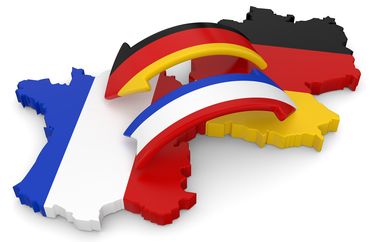The co-chair of the steering group and State Secretary in the Federal Ministry of Education and Research (BMBF), Wolf-Dieter Lukas, said:
'The pandemic has been demanding a lot from us all in the past few months. At the same time, the exceptional situation of the past weeks and months has also activated social forces: numerous people have been involved in local initiatives and shown how the greatest challenges can be overcome through social cohesion. For the future, we want to learn from and with each other. And the Franco-German Forum for the Future is exactly the right platform for this. The Forum for the Future will connect citizens and experts from both nations to discuss fundamental societal questions. We need the German-French engine, especially during the German EU Council Presidency, to shape a sustainable future for Europe. The first main topics of the Forum for the Future will be the experience from the crisis and ecological transformation - and thus two highly topical issues that are central to our social coexistence The work of German and French scientists in the Forum for the future will help to analyse change processes in Germany and France and to develop recommendations for the future.'
The Commissioner for Franco-German Cooperation Michael Roth, Minister of State for Europe at the Federal Foreign Office, added:
'Our goal in the negotiations of theTreaty of Aachen was to promote the unprecedentedly close ties within Franco-German civil society and to tap into this treasure trove of knowledge for our common future. The Forum for the Future has a central task in this. It will only succeed if everyone - government representatives, parliamentarians, representatives of civil society, science or business, and citizens - commits to closer Franco-German cooperation in order to promote a strong and solidary Europe.'
The Franco-German Forum for the Future is meant to invigorate exchange between politics, civil society, science and business in both countries. It is a priority project of the Aachen Treaty, which was concluded on 22 January 2019 between the German and French governments. With this forum, the French and German governments want to promote and accelerate the development towards a sustainable society. The aim of the Franco-German Forum for the Future is to learn from the social change processes already taking place in Germany and France and to develop recommendations for the future of both countries.
The Franco-German Forum for the Future is currently being set up by a joint secretariat in two locations - in Potsdam by the 'Institute for Advanced Sustainability Studies' (IASS e.V.) and in Paris by the think tank 'France Stratégie'. The co-directors are Patrizia Nanz and Gilles de Margerie. The secretariat will organise the work of the Forum for the Future and invite to structured dialogues on both sides of the Rhine.
The BMBF is funding the development of the Franco-German Forum for the Future with a total of 11 million euros over the next three years. The work of the Forum for the Future is accompanied by a German-French Steering Committee with sixteen members: representatives of the German and French governments (BMBF, Federal Foreign Office, Ministère de l'Europe et des Affaires étrangères and Ministère de la Transition écologique et solidaire) as well as members of the national parliaments. It also includes representatives of civil society, social partners, business and science.
The International Bureau supported the BMBF with its country expertise for France during the establishment of both the Franco-German Forum for the Future and the Steering Committee.








